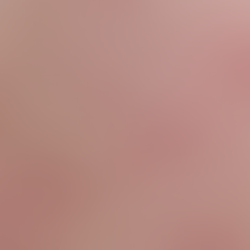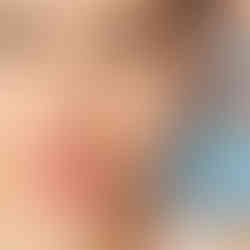10 Things To Try When Acne Won’t Clear
- Rejuvenus Clinic

- Sep 25, 2024
- 7 min read
Acne Treatment at Rejuvenus Clinic.
Understanding & Managing Acne Breakouts in Toronto
Acne is one of those pesky, chronic skin conditions that can affect people at any age. We develop acne when our body produces excess oil or sebum that blocks our hair follicles alongside dead skin cells. As a result, the blocked hair follicles become an excellent environment for bacterial growth and proliferation, which can in turn cause skin inflammation.
Though prevalent and relatively harmless, it can weigh our self-image and confidence. The physicians at our clinic focus on safe and effective medical treatments for acne that allow fast and effective control of the inflammation. It is essential for minimizing acne scarring over the long term.

Where can acne appear? What are the different types of acne?
Acne can appear anywhere on the body, most commonly on our face, chest, and back. It can also appear on the neck, arms, and shoulders. They can present themselves in several forms including:
Blackheads: often referred to as “open comedones,” are small bumps that appear black or yellowish dots on your skin. The black colour is not because they contain dirt. It comes from the sebum in the clogged pores oxidizing when exposed to air. Treatment options are similar to those for whiteheads. Remember that pore strips may be immediately gratifying but can be abrasive. They are a temporary fix that can damage the top layer of your skin and make acne worse.
Whiteheads: also known as closed comedones, happen when pores clog with sebum, oil, or dead skin cells. Try not to pop or squeeze whiteheads, as you may end up with scarring. Some helpful whitehead treatments include sulfur, salicylic acid, or benzoyl peroxide.
Papules: are small inflammatory red bumps that are usually painful to touch. They form when a clogged pore with oil and dead cells infiltrate with Cutibacterium acne or C. Acnes (formerly known as Propionibacterium acnes). Benzoyl peroxide or topical retinoids, antibiotics, or birth control pills for women can help improve inflammatory acne. Antibiotics may help rid C. acnes bacteria, whereas birth control pills can help reduce oil production by decreasing androgen levels. Androgens are also known as male sex hormones found in men and women. These hormones cause an increase in oil production on your skin, which can trigger acne.
Pustules: Pustules are similar to papules but have a white center and red, inflamed skin surrounding them. They are similarly inflammatory but contain a yellow fluid known as pus. Pustules are commonly found in clusters on the face, chest, or back. They form after a clogged pore becomes infected. Hormonal changes in the body can attribute to pustules. We would commonly recommend similar topical medication and antibiotics for pustular acne.
Cyst: Cystic acne is the most severe form of acne. They are generally large, red, inflamed, and painful. Cysts are softer than nodules because they are pus-filled. They can often bur and infect the surrounding skin. Cystic acne is difficult to treat. It may require medications, antibiotics, topical retinoids, birth control pills, or spironolactone. Rarely, as physicians, we may recommend injecting a stubborn cyst with steroids to dampen inflammation and treat the cyst directly.
Nodules: Nodular acne consists of large, flesh-coloured, or red lumps deep under the skin surface and caused by C. acnes bacteria. They cause a painful infection deep within the pores. Over-the-counter treatments generally work on the more superficial levels of the skin and are not as effective for nodular acne. Moreover, prescription medications with prescription-strength benzoyl peroxide, salicylic acid, antibiotics, retinoids, or birth control pills (for women) can be significantly more helpful.
If you have acne, talk to a physician and ask for appropriate help. We make recommendations for skin concerns with appropriate treatments options. We also suggest the best healthy skincare choices that improve acne and skin health. Do not be shy to contact our office to consult for you and your loved ones to get this dealt with today.

Before we meet you, read the following tips that can help you restore healthy, blemish-free skin:
1. Use acne products on all acne-prone skin, not just your blemishes.
If you have been using over-the-counter acne products for weeks and they haven’t helped, it may be time to ask a physician about prescription-strength medications. However, here are some OTC products that you may have found helpful:
Retinoids: A vitamin A derivative that represents the number one topical cream that can treat acne and reduce signs of aging. It promotes skin renewal and collagen production while maintaining skin health and reducing blemishes. Over-the-counter retinoids are usually not as well absorbed and may not reach the therapeutic strength needed to achieve the best results. Also, remember that topical retinoids also increase your skin’s sun sensitivity. Be sure to put your SPF on every morning.
Azelaic acid (AZA): many studies show it has antibacterial properties. It may have the ability to diminish skin blemishes and help acne discoloration fade, restoring skin health and tone.
Salicylic acid: can help rid mild acne by suppressing inflammation and unblocking skin pores. It is usually available both in wash-off and leave-on forms.
Benzoyl peroxide: BPO can kill Cutibacterium acnes, the bacteria responsible for the pimples associated with acne. BPO is more effective if combined with other antibiotics such as clindamycin, prescribed by a physician.
2. Continue your treatment for at least 8 weeks to start noticing progress.
You may think the idea of using a new acne product every few days is practical. In actuality, it can irritate your skin and result in new breakouts that worsen the acne. If you choose the correct treatment, you will be noticing progress at 4 to 6 weeks. Some medications may take 2 to 3 months or more before all the acne has cleared up. If the treatment gives you quick satisfactory results, do not stop abruptly when active acne breakouts are gone. Talk to one of our team members about maintenance treatments.
3. Only wash your face twice a day or shower once daily.

Acne-prone skin is usually sensitive and may easily get irritated by excessive washing that leads to new acne worsening your condition. We recommend washing your face only when you wake up and when you're about to sleep, and as needed when it gets sweaty or dirty. If you have dry skin, use a soap-free cream-based cleanser to avoid over-drying your skin because your skin could trigger a paradoxical increase in your skin's oil production. To reduce sebum production, we advise using a foaming cleanser. Foaming cleansers would be ideal for oily skin.
4. Just don't touch, pop or pick your acne.

Although some people think that popping a pimple seems like the fastest way to clear it, it can worsen every time you touch, pop, or pick a pimple. We cannot stress this point enough. Remember that topical medications are much more effective at treating acne spots and will not cause scarring from picking your acne. We know it is tempting but practice restraint!
Also, remember that bacteria, dead skin cells, and dirt can accumulate on sheets, pillowcases, and hats, blocking your pores when your skin comes in contact with these materials. So regularly washing and replacement of intimate items can significantly improve your condition.
5. Regular exercises.
Never stop exercising. Many people stop exercising as soon as they get acne thinking it may aggravate acne because of the sweating associated with exercise. The truth is, it is vital to stay active. Just take the following recommendations.

Before your workout:
Remove your make-up. An oil-free make-up remover. It does the trick!
Put on. Clean. Work out clothes.
Apply oil-free sunscreen before going outside to prevent your skin from drying out.
During your workout:
Remove your sweat. Regularly with a clean towel.
Avoid occlusive equipment like helmets and shoulder pads as much as possible.
Wipe off shared equipment to minimize bacterial contamination.
After your workout:
Consider taking an immediate shower and use a mild, oil-free cleanser in acne-prone areas.
6. Healthy eating habits.

Research has shown that certain foods like dairy, refined sugars and grains, or fast foods tend to be associated with higher occurrences of acne. If you have identified a trigger, try as much to consume less of it. Consider increasing anti-inflammatory foods packed with antioxidants, such as almonds, blueberries, avocados, and kidney beans. These can help prevent your skin from developing inflammatory acne.
7. Drink lots of water.

Water is an indispensable factor for your bodily functions, such as hormone production from different glands. Hormones play a significant role in the development of acne by controlling sebum production. During your teens, acne is more common as hormone levels spike in those years. Providing your body with plenty of water will keep you in optimal health. The recommended daily consumption amount of water is two litres and increases when you exercise.
8. Replace irritating make-up products with mineral-based make-up.

Try your best to go with as little make-up as you can, or stop using make-up at all if possible when you are experiencing active acne breakouts. If you need make-up to cover up marks or scars, you can use a mineral-based foundation or concealer which contains no oils. It is less likely to block your pores or cause any inflammation that aggravates your acne. Also, make sure that you wash make-up off before bedtime.
9. Follow instructions/directions.
When using any over-the-counter (OTC) acne products, how much and how often you should apply it can make a big difference. Make sure to follow the exact instructions/directions.
10. Consider visiting a doctor.
If you followed all these instructions but your acne does not seem to go away. Or, you have acne nodules and cysts that leave scars when they clear. You probably should think of seeking a doctor’s advice. With the recent medical advancements and pharmaceutical products, almost all cases of acne can be easily treated. Our physicians can help you select the best treatment plan to help clear your acne without too many detours.
Hopefully, these steps will guide you to clear your acne! Don’t be shy to reach out for more information.
Book your consultation at Rejuvenus Clinic at 647.615.0223 to schedule a complementary consultation and discuss options for acnr treatment and how it can fit into your personalized treatment plan for healthy glowing skin.
#rejuvenus#rejuvenusclinic#rejuvenusclinicca #microneedling #MicroneedlingTreeatment #PlateletRichPlasma #PRP #collageninductiontherapy #MicroneedlingToronto #PRPToronto #SkinBoosterrtreatment #redensity1treatment #Toronto #BelaMD #BelaMDToronto #AcneTreatment #AcneTreatmentToronto #AcneToronto #Clearyouracne #AcneTips
























Commenti